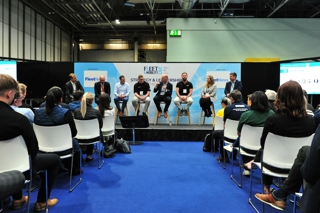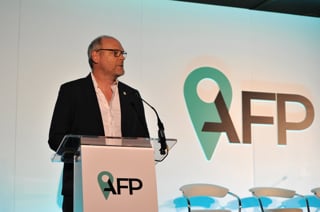This article was first published in the June digital edition of Fleet News.
Serious and systemic health and safety failings that led to the deaths of two employees in a works van would, some might think, attract a charge of corporate manslaughter.
Instead, the employer – Renown Consultants – was charged and found guilty under health and safety legislation and, rather than the police pursuing the prosecution, it was a regulator that was left to prosecute the case.
Twelve years after the Corporate Manslaughter and Corporate Homicide Act came into force, there have been just 26 convictions.
Cotswold Geotechnical Holdings was the first company to be convicted under the new legislation after an employee was crushed to death when the sides of an excavated pit collapsed while he was collecting soil samples. The firm was fined £385,000 in 2011, which led to its closure.
Four years later, Baldwins Crane Hire became the first business to face a corporate manslaughter charge involving the death of a company driver.
An investigation by Lancashire Police and the Health and Safety Executive (HSE) revealed that the employee had been driving a heavy crane down a steep road, when the vehicle’s brakes failed and it crashed into an earth bank.
The company was fined £700,000 and ordered to pay £200,000 in costs after being found guilty of corporate manslaughter and health and safety offences.
BURDEN OF PROOF
Under the former corporate manslaughter legislation, the prosecution would have had to prove that a ‘directing mind’ – a director or manager – was guilty of gross negligence manslaughter to convict a company for manslaughter.
However, it was difficult to prove against large companies and, following several high-profile failures, the law was changed to allow a company to be convicted of manslaughter without prosecuting any individual.
Health and safety legal expert, Michael Appleby, a partner at Fisher Scoggins Waters, told Fleet News: “Since the law came into force, there have been very few prosecutions and nearly all of them have been against small companies with only a few directors, and, arguably, many of these cases could have been brought under the old law.”
A charge of corporate manslaughter has to be proved to the criminal standard; in other words, beyond reasonable doubt.
This does not apply to health and safety prosecutions.
A prosecution of a company for a breach of section 2 of the Health and Safety at Work Act for failing to ensure the health and safety of employees, or section 3 for failing to ensure the health and safety of non-employees, is much easier to prove, says Appleby.
“All the prosecution has to prove to the criminal standard is that there was an exposure to material risk and then it is for the company to prove to the civil standard, i.e. on the balance of probabilities, it did everything that was reasonably practicable to control the risks.”
FATIGUE FAILINGS
This was the approach taken in the case where two employees were killed in a works van. Zac Payne, 20, and Michael Morris, 48, died on June 19, 2013, when Payne fell asleep at the wheel of a van operated by Renown Consultants.
The vehicle ploughed into a truck parked in a layby on the A1 and caught fire. Both Payne and Morris were pronounced dead at the scene.
The previous day, Payne had left Doncaster at 4.30am and driven to Alnmouth, Northumberland, arriving to carry out work on the railway. The expected work did not take place. So, after waiting until midday, Payne returned to the Doncaster depot, arriving at 3pm.
On his return journey, he was asked to take on an overnight railway welding job in Stevenage and, with Morris, they set off from the depot four hours later, arriving at the site just before 10pm.
After nearly six hours working on the tracks, Payne was driving back to Doncaster when the crash occurred at around 5.30am.
The police investigation was handed over to the Office of Rail and Road (ORR) in 2014, which found serious and systemic failings to manage fatigue.
Renown was found guilty in March, following a trial at Nottingham Crown Court.
In sentencing the company, Judge Goldsmark said that, while fleet safety policies were in place, operations managers paid “lip service” to them.
Furthermore, despite the company’s insurance policy stipulating only over-25s may drive their vehicles, the judge said it was “common practice” for younger employees to drive to and from jobs.
He said senior operations managers at the Doncaster depot “cut corners”, with “expediency” often overriding known safety policies, and there was a “wilful blindness”, when it came to the management of fatigue, driver time and distances to and from jobs.
He also said that the paperwork relating to fleet-related audits did not tell the full story and breaches of health and safety legislation were “systemic and long-lasting”.
‘NO DIFFERENCE’
Peter Eldridge, a director at the Association of Fleet Professionals (AFP), says a “virtually identical” case occurred in 2003, with a company called MJ Graves International.
Martin Graves, the owner, was jailed for manslaughter after one of his drivers killed a motorist. He was sentenced to four years for gross negligence manslaughter and 12 months, to run concurrently, for falsifying tachograph records.
Eldridge said: “I looked at the Renown case and couldn’t see a scrap of difference because there were systemic failings in the control, there were systemic failings on the part of individuals in the business at Renown and there were systemic failings on the part of the business.
“Why weren’t they prosecuted (for corporate manslaughter)? On the basis of the law, it’s difficult to understand why it wasn’t taken further.”
The police are responsible for investigating suspected cases of corporate manslaughter, but when it came to Renown, it was left to the regulator to pursue the prosecution.
Ian Prosser, HM Chief Inspector of Railways, told Fleet News: “The police had a look and I think they saw the potential complexity in how they would try and pull that sort evidence together.
“Corporate manslaughter is very difficult (to prove) and the HSE were not interested either in trying to take it forward.”
He explained: “We couldn’t bring a manslaughter charge, so we looked for failings in the application of their management system, which, in the end, was where we were successful.”
LEVEL OF FINE
It was the first time that the regulator had brought a prosecution in relation to failures of fatigue management.
Prosser says it was a “very difficult” case. “We were concerned that unless we had every ‘i’ dotted and ‘t’ crossed, we would probably have lost it.”
The firm was ordered to pay a fine of £450,000 and costs of £300,000 after being found guilty under sections 2 and 3 of the Health and Safety at Work Act and regulation 3 of the Management of Health and Safety at Work Regulations.
Sentencing guidelines for a company with Renown’s turnover, under corporate manslaughter, would have seen a starting point of £800,000 for high level of harm or culpability and £540,000 for a lower level of culpability.
INSUFFICIENT EVIDENCE
The ORR says it didn’t take any action against the directors or senior managers as there was insufficient evidence.
Appleby said: “That may explain why the police did not pursue corporate manslaughter charges because they concluded they would not be able to prove senior management failure.
“It may also be the case that while the police could have concluded that the failure by the company was a bad failure it was not bad enough to be characterised as ‘gross’.”
The judge in his summing up concluded that Renown’s breaches of duty of care were due to the failure of senior management.
However, Appleby explained: “The judge did not go as far as saying that the breaches by Renown were gross breaches, which would be required for corporate manslaughter.
“What he did say was that the company fell far short of the appropriate standard, the breaches occurred over a long period of time and that they were a serious and systemic failure.”






















Login to comment
Comments
No comments have been made yet.